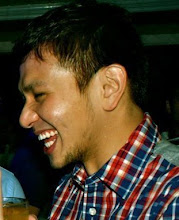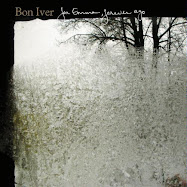-
The air was thick with excitement. A band played loud marching music and young boys and girls dressed in bright colorful costumes were dancing. The atmosphere was festive, joyful. The workers at the shipyard were gathered around the dock and local government officials had just arrived to witness the launching of a ship.And then it was time. The foreman waved a white flag to signal the launch and the 58,000 ton “Ocean Symphony” slowly started rolling towards the ocean. I was staring at it in wide-eyed wonder as firecrackers and confetti exploded in the air and suddenly, she hit the waters for the very first time and the entire place erupted in shouts and cheers.
It was magnificent. It was like New Year's eve, it was like the fourth of July, it was one of the best moments of my life as a journalist. I was overwhelmed. Feelings of joy, of wonder, of inexplicable emotions got me teary-eyed and I thought to myself, "Wow, am I a lucky bastard or what." I actually got to see this.
It all started when my bosses told me "We want you to go to Cebu."
My company wanted to write a story about how Southeast Asian nations are set to benefit from the so-called demographic dividend --- a term popularized by economists David E. Bloom, David Canning and Jaypee Sevilla in a 2001 National Bureau of Economic Research study. It happens when most of a country’s population is in the 15-to-64 working-age range. This increases a nation's productivity if supported by policies that promote health, family, labor and financial and human capital, the study concluded.
And it's happening. Here, now. In countries like the Philippines where a rising young population is luring investments from companies like Tsuneishi Holdings Inc., Japan’s second-largest shipbuilder. Tsuneishi's shipyard in Cebu supports more than 15,000 jobs and the company is considering building another one in the Philippines.
One of the best things I love about my work is our ability to tell stories that foretell what the future can be, to give our readers a glimpse of the trends and changes happening across the world. It teaches you to be inquisitive, to be curious, to be critical. It shapes your world view, your understanding of the political, social aspects and dynamics of human societies.
I became a reporter by accident. I thought I would perhaps be in advertising, or brand management, or in the sciences. One day, I saw an ad for a position at a local newspaper.I was unemployed at that time, and I thought: well, what the heck, why not? By luck would have it, they actually hired me. And the rest, as they say, is history.
In a world where people have greater access to information due to the Internet, it becomes more imperative that news agencies give more value to their clients/readers. As someone once told me, there is a difference between journalism and a commentary.
Anyone can comment on current events and we see this a lot in social networks like Facebook and Twitter. And this is good; it creates greater awareness among the public of issues whether it's the impeachment trial of the chief justice in the Philippines, President Benigno Aquino's state-of-the-nation speech, or the China-Philippines territorial dispute in Scarborough Shoal.
But journalism goes beyond making opinions. It involves research, fact checking, getting all sides, and asking and showing the big picture: so what? Why should I care who the next chief justice will be? Why does the territorial dispute matter?
The goal of journalism is to help people make better sense of things. Knowledge is power, it is freedom and history has shown that as citizens gain more understanding, they begin to wield more political power and influence on state policies and forces politicians to be accountable.
Most people in the world know very little about the
Philippines. And what little they know are often about Imelda Marcos' and her
infamous shoe collection, the white sand beaches, and then it's about poverty
and corruption.
I used to dream that things would change. The kind of nation
I inherited was because of the failures of past generations. But you see,
it's my time now. No more finger-pointing, ranting and passing the blame. So as I said, I used to have a dream. And as I stared at the
massive ship floating at sea, I told myself ... maybe, just maybe ... it's
happening now.
To read the report on demographic dividend, please click here.
-




5 comments:
Love this blog entry of yours, Kane. Two things I've noticed: Your "makabayan" side showed its colors, and you have revealed a little of what you do, as a professional, in real life.
Thank you, for finally letting us, see a glimpse of your hidden realms. :)
it's actually refreshing to have read about this brainy side of you.. mas nakaka-intimidate ka tuloy, my dear K.. :)
With the theory of demographic dividend, how relevant is it that they tell and push that our problem is that we are young and many?
K, whatever you write is inspiring. Maybe it's because from the core, your love for life is far more important than anything and it radiates in your stories of longing, loss, betrayal, quickies and night outs.
Greetings from Lanao del Norte. I feel like writing about my job too (which is something long over due)
Yas,
This blog is through a nice to meet new people and their land, culture and nature. Come and look at you Teuvo Kuvat - Teuvo images, both at the same time will be my blog collection flag depicting your country's flag to rise higher. You should also tell all your friends to my blog by fermentation. Teuvo Vehkalahti Finland
A great blog. Welcome: myphottoss.bogspot.com
Post a Comment